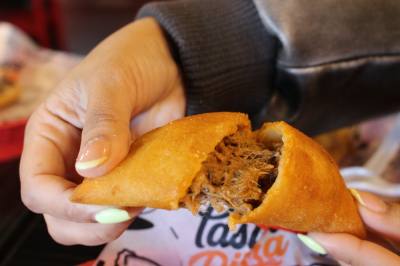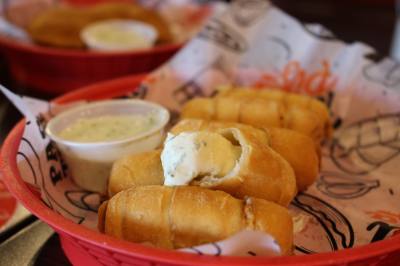They worked in construction and as a babysitter, respectively. But on the weekends, they’d make and sell Venezuelan street food from their apartment.
They now own three locations of their restaurant, Pastel Pizza, in Katy, Houston and Spring.
With plans to open a fourth eatery in late 2024 and ongoing construction for a 20,000-square-foot warehouse to produce Pastel Pizza products for customers to take and make in their own homes, Revilla said she is thankful for the continued growth of their brand.
“We’re so grateful,” Revilla said. “We have 41 employees, we have a bigger house, and we’ve grown our family.”

Traditionally, pastelitos are puff pastries filled with ground beef or chicken and queso fresco, but the couple said they Americanized the fried pastries by using pizza ingredients—such as pepperoni and mozzarella cheese.

“We want people to be open to trying new things,” Revilla said. “American people know tacos, and they know kolaches; we want to introduce them to Venezuelan culture.”
How we got here
The Katy eatery on Mason Road is the flagship restaurant for Pastel Pizza, which opened in April 2022, Revilla said. However, they started out as a food truck just down the street four years prior in 2018.
It did not take long for the word about their traditional Venezuelan cuisine to spread around Katy, they said. It was so highly requested that Rosales said he quit his job in construction to make the street food throughout the week to fulfill all the orders.

“When we first moved here, it was so hard to find jobs,” she said. “We were walking through the streets to find jobs.”
Ultimately, the couple said they want their brand to be as prolific as chains such as the Kolache Factory.
“We’re looking to have representation for Venezuelan people,” she said. “We are good people, with a good business.”
- 351 S. Mason Road, Katy
- www.pastelpizza.com







